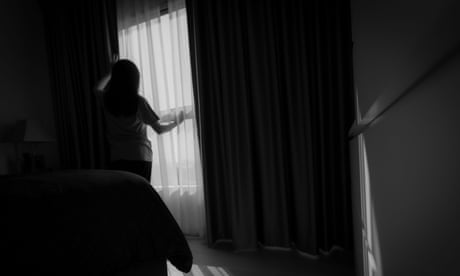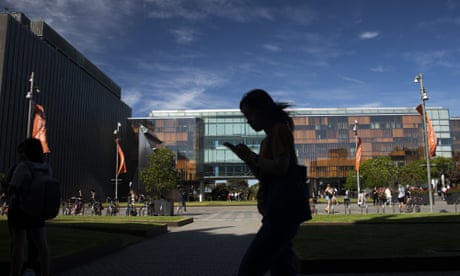As on-campus sexual misconduct cases escalate, there are increasing calls to talk openly with young people about sex, pleasure and consent

Sun 17 Sep 2023
Among the stalls encouraging students to sign up for rock climbing, parkour, the law society, and inevitably the pub crawl group, university freshers’ fairs have for many years now given out free rape alarms to young women. This conjures up the image of an attack by a stranger, perhaps on the way home from a night out.
But this gesture perhaps distracts from an urgent and rapidly escalating problem taking place much closer to home – that of increasingly violent sexual assault on campus. In most cases the male student accused of wrongdoing is in the same friendship group as the young woman reporting him, often studying on the same course. They may live just down the corridor in halls or even in the same flat.
Universities are gearing up this term for what is becoming an increasingly frequent and difficult problem, with staff left to investigate these complex cases. Many victims are unwilling to go to the police because they know the justice system is slow, traumatic and rarely results in conviction for rape, and more and more are turning to their university instead.
Prof Steve West, vice-chancellor of the University of the West of England, heads one of the many universities now trying to work out how to tackle this issue. He explains that once a student has made a complaint, and it has been determined that they do not want to go to the police, the university’s own internal investigation will “gather pace quite quickly”. While a criminal rape investigation often takes years, a university will aim to investigate in a few months.
Both students will have a different team in the university offering them support, though West says in serious cases they often suspend the accused student pending investigation “to give some distance”.
Not talking to teenagers in universities and schools about choking without consent seems ridiculousRose Stephenson, Higher Education Policy Institute
West is frustrated that the Office for Students has stressed that universities are not like courts of law and should take evidence from students supported by friends or family, but then goes on to advise that accused students facing possible suspension or expulsion can have legal representation.
“This is happening more often – and my personal view is that hiring a lawyer is completely unfair and unmanageable,” West says. “Usually you’ve got the accused student being represented legally and the victim not. It is completely ridiculous.”
He worries that this will put students off coming forward when they have been assaulted. “The last thing we want is to drive silence, and have young women feeling they can’t go through the trauma of an investigation,” he says.
Experts say issues around consent at university are becoming more complicated, with strangling – referred to by many students as choking – often a feature of sexual assault complaints, echoing its prevalence in the violent porn which many students will have been encountering for years while still at school.
Rose Stephenson, director of policy and advocacy at the Higher Education Policy Institute thinktank, says universities need to be “brave” and look this squarely in the face.
Among the stalls encouraging students to sign up for rock climbing, parkour, the law society, and inevitably the pub crawl group, university freshers’ fairs have for many years now given out free rape alarms to young women. This conjures up the image of an attack by a stranger, perhaps on the way home from a night out.
But this gesture perhaps distracts from an urgent and rapidly escalating problem taking place much closer to home – that of increasingly violent sexual assault on campus. In most cases the male student accused of wrongdoing is in the same friendship group as the young woman reporting him, often studying on the same course. They may live just down the corridor in halls or even in the same flat.
Universities are gearing up this term for what is becoming an increasingly frequent and difficult problem, with staff left to investigate these complex cases. Many victims are unwilling to go to the police because they know the justice system is slow, traumatic and rarely results in conviction for rape, and more and more are turning to their university instead.
Prof Steve West, vice-chancellor of the University of the West of England, heads one of the many universities now trying to work out how to tackle this issue. He explains that once a student has made a complaint, and it has been determined that they do not want to go to the police, the university’s own internal investigation will “gather pace quite quickly”. While a criminal rape investigation often takes years, a university will aim to investigate in a few months.
Both students will have a different team in the university offering them support, though West says in serious cases they often suspend the accused student pending investigation “to give some distance”.
Not talking to teenagers in universities and schools about choking without consent seems ridiculousRose Stephenson, Higher Education Policy Institute
West is frustrated that the Office for Students has stressed that universities are not like courts of law and should take evidence from students supported by friends or family, but then goes on to advise that accused students facing possible suspension or expulsion can have legal representation.
“This is happening more often – and my personal view is that hiring a lawyer is completely unfair and unmanageable,” West says. “Usually you’ve got the accused student being represented legally and the victim not. It is completely ridiculous.”
He worries that this will put students off coming forward when they have been assaulted. “The last thing we want is to drive silence, and have young women feeling they can’t go through the trauma of an investigation,” he says.
Experts say issues around consent at university are becoming more complicated, with strangling – referred to by many students as choking – often a feature of sexual assault complaints, echoing its prevalence in the violent porn which many students will have been encountering for years while still at school.
Rose Stephenson, director of policy and advocacy at the Higher Education Policy Institute thinktank, says universities need to be “brave” and look this squarely in the face.

‘We need to have grownup conversations with teenagers about choking and also sexual pleasure’: Rose Stephenson of the Higher Education Policy Institute.
Photograph: Nic Delves-Broughton
“Not talking to teenagers in universities and schools about choking without consent seems ridiculous to me,” she says.
“We need to have grownup conversations with teenagers about this – and that means also discussing sexual pleasure,” she adds. “That can be an uncomfortable thing for institutions to accept they have to talk to freshers about.”
Smita Jamdar, partner and head of education at law firm Shakespeare Martineau, gets called in to sexual assault investigations when universities feel particularly out of their depth, often because the parents of the accused have hired a lawyer.
She says: “Students now are navigating so much more complexity. They have seen stuff online about sex which many fully grown adults would struggle to process.”
As a result she says: “Allegations of some form of sado-masochism, including choking, are not uncommon.”
Jamdar explains that in some of these S&M cases the woman who has reported the assault has been clear that she does not want this. However, sometimes it is in a longer-term relationship where it has been a shared practice between two students, but some months in, one “reaches the conclusion that it is not OK for them”.
“These are particularly challenging cases, and it is difficult for the university to get to the bottom of whether someone should have known if their partner was still consenting,” she says.
In an attempt to address this earlier, the majority of universities now offer training on sexual consent as part of the packed freshers’ programme of activities and parties. Yet far fewer insist that all students attend.
“Not talking to teenagers in universities and schools about choking without consent seems ridiculous to me,” she says.
“We need to have grownup conversations with teenagers about this – and that means also discussing sexual pleasure,” she adds. “That can be an uncomfortable thing for institutions to accept they have to talk to freshers about.”
Smita Jamdar, partner and head of education at law firm Shakespeare Martineau, gets called in to sexual assault investigations when universities feel particularly out of their depth, often because the parents of the accused have hired a lawyer.
She says: “Students now are navigating so much more complexity. They have seen stuff online about sex which many fully grown adults would struggle to process.”
As a result she says: “Allegations of some form of sado-masochism, including choking, are not uncommon.”
Jamdar explains that in some of these S&M cases the woman who has reported the assault has been clear that she does not want this. However, sometimes it is in a longer-term relationship where it has been a shared practice between two students, but some months in, one “reaches the conclusion that it is not OK for them”.
“These are particularly challenging cases, and it is difficult for the university to get to the bottom of whether someone should have known if their partner was still consenting,” she says.
In an attempt to address this earlier, the majority of universities now offer training on sexual consent as part of the packed freshers’ programme of activities and parties. Yet far fewer insist that all students attend.
While men do attend the consent workshops I’ve delivered at universities, they make up 25% to 30% of the audience
Allison Havey, Rap Project
Allison Havey, co-founder of the Rap (raising awareness and prevention) Project, which runs consent workshops for students, firmly believes they should be mandatory when young people arrive at university. This is something many female students have campaigned for, and which the Office for Students is consulting on.
Havey says: “While men do attend the consent workshops I’ve delivered at universities, they make up 25% to 30% of the audience.”
She wants all students to be taught the law around consent, understanding, for instance, that if a woman is really drunk, she cannot consent to sex and it is rape. And she wants freshers to understand how to be an active bystander, stepping in when something doesn’t feel right.

‘It’s a power game’: students accused in university rape hearings call in lawyers
“We absolutely ask students to have each other’s backs,” she says. “If you are at a party and someone is very drunk or out of it and you see someone leading them into a bedroom, you should say something like: ‘Hey, they’re wasted and can’t say clearly if they consent or not. Why not revisit this tomorrow when they have sobered up?’”
Investigating sexual assault cases, regardless of the details, is rarely an easy task for universities. A student conduct panel will need to decide whether a student has broken the university’s rules by committing “sexual misconduct” and should therefore be suspended or expelled, but with none of the forensic crime facilities the police use and no right to demand anything such as access to phones for evidence.
Any quasi-legal process requires listening to both sides, and Jamdar acknowledges that women who have gone to their university for justice and support can find this very painful.
Hope Conway-Gebbie, who was women’s liberation officer for Edinburgh University students’ union last year, recalls how “deeply upsetting” one female student who she supported found the process.
The student was, she says, initially told by the student disciplinary team that they would be upholding her complaint of rape. However, when she attended the final panel session she was “totally unprepared for what they put her through”.
Conway-Gebbie says: “Her attacker’s parents were wealthy and he had the best legal representation money could buy. He had access to anything submitted on her behalf, such as medical evidence and evidence from her friends.” Meanwhile the female student had no access to any of his information and wasn’t even aware she could have a lawyer.
In the end no sanctions were made, and both students continued to study at the university. The female student bumped into the man she accused in Edinburgh and regularly had to see the friends who defended him.
Conway-Gebbie says this deters others from reaching out. “For every woman who has been failed and retraumatised by this process, there are a dozen who hear this and decide not to put themselves through it. Their assaults then go unreported.”
A spokesperson for Edinburgh University said they could not comment on individual cases, but insisted the safety of students and staff is their priority.

Universities criticised for failed response after report details extent of sexual violence on campuses
She said: “We do not tolerate sexual violence within our community and we have processes in place to enable us to investigate reports made to us thoroughly and in a supportive way.
“We have a dedicated team who provide specialist advice, support and guidance to those affected by forms of abuse, including guidance on how to contact external organisations, including the police,” she added.
Ellie Wilson, who saw the boyfriend who raped her while she was a student at Glasgow University convicted in court last year, told the Observer that she understood why other female students go to their university instead of the police.
“I was in a fairly unique position because I had a lot of strong evidence, including screenshots of messages where he said he had raped me, and a recorded confession,” she says.
She went to the university first herself, which she describes as “an enormous step” for a victim. “You worry about what the reaction of other people in the university will be. There is huge social pressure, and speaking out against your peers can be really isolating. People take sides,” she says.
Wilson’s boyfriend was suspended by Glasgow after the police arrested him for rape. However, while waiting for the case to come to court he was able to enrol at Edinburgh University. When Wilson heard she was horrified and approached Edinburgh to warn them of the ongoing case, but she was informed that they already knew.
“It was truly appalling,” she remembers. “I was working in Edinburgh and I had thought he was miles away at home in Inverness, but instead he was there and being allowed to make a fresh start, going out drinking and joining the athletics club.”
A spokesperson for Edinburgh University reiterated that they could not comment on individual cases.
Wilson has lodged a petition with the Scottish parliament demanding that universities should be required to declare if someone is being investigated or has been expelled or suspended for sexual assault by another institution.
Kieran McCartan, professor of criminology at UWE, runs a programme which works with male students who are reported for sexual harassment or misogyny, with the aim of making them question their attitudes before their behaviour escalates.
This is not common practice in universities yet, but he hopes it could help to stem the growing tide of sexual violence across the sector.
“The vast majority of young men I’ve worked with in this group start to question their actions by the end,” he says. “You see them realise that their whole life could be derailed because they are making bad decisions.”
Allison Havey, co-founder of the Rap (raising awareness and prevention) Project, which runs consent workshops for students, firmly believes they should be mandatory when young people arrive at university. This is something many female students have campaigned for, and which the Office for Students is consulting on.
Havey says: “While men do attend the consent workshops I’ve delivered at universities, they make up 25% to 30% of the audience.”
She wants all students to be taught the law around consent, understanding, for instance, that if a woman is really drunk, she cannot consent to sex and it is rape. And she wants freshers to understand how to be an active bystander, stepping in when something doesn’t feel right.

‘It’s a power game’: students accused in university rape hearings call in lawyers
“We absolutely ask students to have each other’s backs,” she says. “If you are at a party and someone is very drunk or out of it and you see someone leading them into a bedroom, you should say something like: ‘Hey, they’re wasted and can’t say clearly if they consent or not. Why not revisit this tomorrow when they have sobered up?’”
Investigating sexual assault cases, regardless of the details, is rarely an easy task for universities. A student conduct panel will need to decide whether a student has broken the university’s rules by committing “sexual misconduct” and should therefore be suspended or expelled, but with none of the forensic crime facilities the police use and no right to demand anything such as access to phones for evidence.
Any quasi-legal process requires listening to both sides, and Jamdar acknowledges that women who have gone to their university for justice and support can find this very painful.
Hope Conway-Gebbie, who was women’s liberation officer for Edinburgh University students’ union last year, recalls how “deeply upsetting” one female student who she supported found the process.
The student was, she says, initially told by the student disciplinary team that they would be upholding her complaint of rape. However, when she attended the final panel session she was “totally unprepared for what they put her through”.
Conway-Gebbie says: “Her attacker’s parents were wealthy and he had the best legal representation money could buy. He had access to anything submitted on her behalf, such as medical evidence and evidence from her friends.” Meanwhile the female student had no access to any of his information and wasn’t even aware she could have a lawyer.
In the end no sanctions were made, and both students continued to study at the university. The female student bumped into the man she accused in Edinburgh and regularly had to see the friends who defended him.
Conway-Gebbie says this deters others from reaching out. “For every woman who has been failed and retraumatised by this process, there are a dozen who hear this and decide not to put themselves through it. Their assaults then go unreported.”
A spokesperson for Edinburgh University said they could not comment on individual cases, but insisted the safety of students and staff is their priority.

Universities criticised for failed response after report details extent of sexual violence on campuses
She said: “We do not tolerate sexual violence within our community and we have processes in place to enable us to investigate reports made to us thoroughly and in a supportive way.
“We have a dedicated team who provide specialist advice, support and guidance to those affected by forms of abuse, including guidance on how to contact external organisations, including the police,” she added.
Ellie Wilson, who saw the boyfriend who raped her while she was a student at Glasgow University convicted in court last year, told the Observer that she understood why other female students go to their university instead of the police.
“I was in a fairly unique position because I had a lot of strong evidence, including screenshots of messages where he said he had raped me, and a recorded confession,” she says.
She went to the university first herself, which she describes as “an enormous step” for a victim. “You worry about what the reaction of other people in the university will be. There is huge social pressure, and speaking out against your peers can be really isolating. People take sides,” she says.
Wilson’s boyfriend was suspended by Glasgow after the police arrested him for rape. However, while waiting for the case to come to court he was able to enrol at Edinburgh University. When Wilson heard she was horrified and approached Edinburgh to warn them of the ongoing case, but she was informed that they already knew.
“It was truly appalling,” she remembers. “I was working in Edinburgh and I had thought he was miles away at home in Inverness, but instead he was there and being allowed to make a fresh start, going out drinking and joining the athletics club.”
A spokesperson for Edinburgh University reiterated that they could not comment on individual cases.
Wilson has lodged a petition with the Scottish parliament demanding that universities should be required to declare if someone is being investigated or has been expelled or suspended for sexual assault by another institution.
Kieran McCartan, professor of criminology at UWE, runs a programme which works with male students who are reported for sexual harassment or misogyny, with the aim of making them question their attitudes before their behaviour escalates.
This is not common practice in universities yet, but he hopes it could help to stem the growing tide of sexual violence across the sector.
“The vast majority of young men I’ve worked with in this group start to question their actions by the end,” he says. “You see them realise that their whole life could be derailed because they are making bad decisions.”
A SEVENTIES CURRICULUM
ANARCHIST CONSENSUAL HETEROSEX PLEASURE BOOK
No comments:
Post a Comment